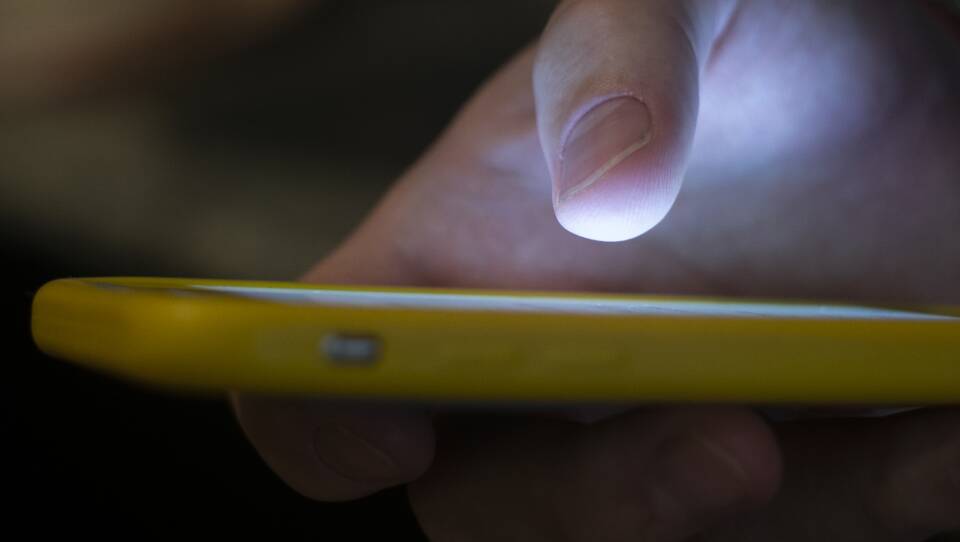Wednesday marks the third anniversary of the launch of the national 988 suicide prevention hotline. It’s also the last day that callers in crisis will be offered the option of a dedicated line for LGBTQ+ youth.
That’s because funding for the program was eliminated last month by the Substance Abuse and Mental Health Services Administration, the federal agency responsible for the 988 hotline.
Callers will still be able to access help through the 988 “suicide and crisis lifeline,” but will no longer be able opt for specialized care for LGBTQ+ youth. A monthly average of 580 callers in Massachusetts pressed “3” to choose that dedicated support line last year.
“This means that one of our most vulnerable populations is now going to be underserved in the most dangerous way,” said Tony Leone, program director for the North Shore Alliance of GLBTQ+ Youth, or NAGLY. “This is life threatening to say the least. Youth who are in the midst of a mental health crisis will not have the support from safe and affirming specialists during the point where they may need it the most.”
In an email to GBH News, a Department of Health and Human Services spokesperson said the government has spent $33 million on the “Press 3” option, which has now run out of congressionally directed funding. The spokesperson said continuing to fund the call line threatened to put the entire 988 Suicide & Crisis Lifeline in danger of massive reductions in service.
A statement from SAMHSA on June 17 announcing the decision said 988 “will no longer silo LGB+ youth services, also known as the 'Press 3 option,' to focus on serving all help seekers, including those previously served through the Press 3 option.”
“Everyone who contacts the 988 Lifeline will continue to receive access to skilled, caring, culturally competent crisis counselors who can help with suicidal, substance misuse, or mental health crises, or any other kind of emotional distress, the statement reads. ”Anyone who calls the Lifeline will continue to receive compassion and help.“
Since the “Press 3” option was introduced in 2022, those calls have been routed to a national organization called The Trevor Project, a nonprofit dedicated to ending suicide among LGBTQ+ young people.
“This is devastating, to say the least,” Trevor Project CEO Jaymes Black said in a written statement last month when the decision was announced. “Suicide prevention is about people, not politics. The administration’s decision to remove a bipartisan, evidence-based service that has effectively supported a high-risk group of young people through their darkest moments is incomprehensible.”
Black noted the administration’s use of the acronym “LGB+” in its statement, omitting the customary “T,” representing transgender people.
“Transgender people can never, and will never, be erased,” Black said.
In Massachusetts, most 988 calls are routed to one of five lifeline call centers in the state. Over the last year, those centers answered nearly 88,000 calls. And while those centers say they’re ready and able to answer calls that previously might have been routed to the Trevor Project, they say they’re saddened by the change.
“We are very disheartened and opposed to this decision to eliminate this life-saving resource for LGBTQ+ youth who are at higher risk. We have data that shows they are at higher risk for suicide,” said Kathy Marchi, who heads Samaritans, Inc. in Boston, one of the centers answering 988 calls.
“Folks who are LGBTQ+ are already facing barriers to mental health care, [and] discrimination that they face in many different ways, and may not feel safe reaching out to other sources for support,” Marchi said. “And that’s the difference, that their identity is acknowledged and recognized by having that option.”
“For them to have that specialized care helps them feel more supported and as if they’re belonging, having peer support. So it is devastating,” said Darcy Lee, who heads Samaritans Southcoast, which is one of several groups that answer 988 calls in the state. “However, we are prepared to receive their calls.”
And, Lee said, they’ll provide the competent, compassionate care that the callers deserve.
“This administration is set on attacking the most vulnerable for the comfort and fragility of the most privileged,” said Shaplaie Brooks, executive director of the Massachusetts Commission on LGBTQ Youth.
“I think Massachusetts has made a powerful statement to this administration about how fierce our protection is for our LGBTQ Youth,” Brooks said. “I believe that the hotline has prepared their workforce to provide inclusive services to those who need them. At the Commission, our focus is making sure that every service is inclusive of LGBTQ people and young people who are Black and brown.”
Produced with assistance from the Public Media Journalists Association Editor Corps funded by the Corporation for Public Broadcasting, a private corporation funded by the American people.





